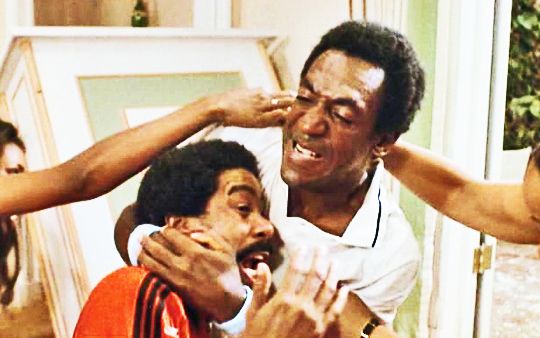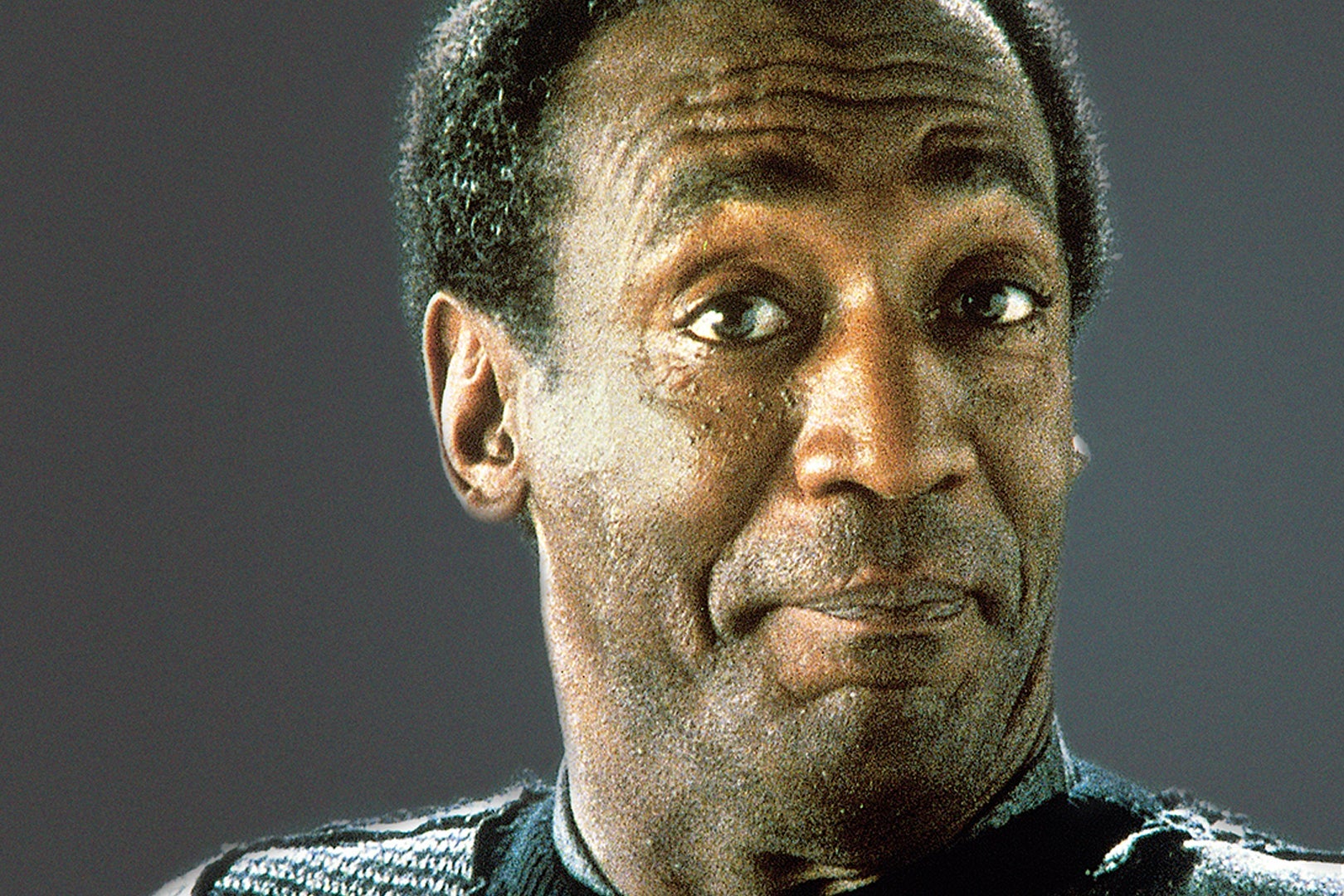
The four-part docuseries teaches why we have to consider Cosby’s full legacy, good and bad, if we want to understand it.

W. Kamau Bell may be a stand-up comedian by day, but he’s also one of our most pointed cultural commentators. His CNN show, United Shades of America, is a documentary-style look at communities across the nation, infusing his slightly cynical, no-holds barred perspective with an unvarnished look at Americans most of us look past.* His Showtime docuseries, We Need to Talk About Cosby—which aired its fourth and final episode tonight—narrows the scope even more tightly. Instead of understanding the unique lives of many people, Bell looks at the life of one disgraced man, and how his crimes affected the lives of others.

When Bell was working on the show, Bill Cosby was in jail for assaulting Andrea Constand, one of many women who have accused him of sexually abusing them, a list that spans over the course of decades. By June 2021, however, the comedian, actor, author, and educator’s conviction was overturned because of prosecutorial misconduct. The prosecution is currently fighting to appeal this decision, but where we stand is that We Need to Talk About Cosby is airing at time when what seemed to be a win for sexual assault victims has been taken away from them. This complicated context makes the series feel even more pressing and necessary than it may have while Cosby was sitting in jail.
Slate spoke with Bell about the lessons he hopes we take away from this series, the parts of Cosby’s career that he could have dug more deeply into, and why we really need to talk about Cosby right now, as he once again roams free. This conversation has been edited and condensed for clarity.
Allegra Frank: Unlike similar documentaries about controversial men—Surviving R. Kelly and HBO’s Woody Allen and Michael Jackson series, for example—We Need to Talk About Cosby aired after Bill Cosby was charged for many of his crimes, went to trial, and was sentenced. In comparison, these other shows spotlight criminal actions from popular figures that haven’t been publicly tried yet. Considering this context, what do we still need to talk about?
Kamau Bell: There’s a line in the narration where I say, “How do we reckon with all the good that he did and then reckon with the crimes that I and many others believe that he did?” You boil it down to art versus artist, but nobody is a bigger sort of challenge to that question than Bill Cosby, because it wasn’t about like, “Oh, he was just a funny comedian.” He actually became an example for good in the world, and specifically for the Black community. [He was] the kind of person you should be, who does good work, does good in your community, helps others, hires from your community, encourages people to get educated, then makes it easier through donations for people to get educated. He was a North Star for Black people. But then you find out about these 60-plus women who’ve come forward. I understand people go, “Well, I’m just throwing away all the good stuff.” And then there’s people that say, “Well, I’m not going to believe the bad stuff.” … I understand struggling to believe it, but I don’t have a harder time saying I don’t believe it at all.
[The purpose of the show for me is like,] if I were to invite a bunch of smart, funny people who I’d worked with, people who I sort of knew, people I admired to my house, and we had a dinner party, and at the end of dinner, somebody was like, “Can we talk about Bill Cosby,” this is the conversation that would be had. It would be all over the place. It would not just be focused on one area. … You would sort of go, “Let everybody have their place to talk.”
[A big inspiration was] O.J.: Made in America, which is like, how do you talk about OJ Simpson? Well, you talk about O.J. Simpson by talking about the America that he grew up and lived in. That was such a revelation. I always think about the part at the beginning where it’s clear we’re going to talk about the murders of Ron Goldman and Nicole Simpson. But it’s also clear that we’re going to talk about how good he was at football. Within a few minutes of [Made in America], you’re like, “Man, he was good at football.” Then your brain’s like, “What are you talking about? Why would you say that? I don’t know he was good at football, but he also did these things.” And director Ezra Edelman’s inviting you to take the journey with him and go, “We’re going to get to all of it. Don’t worry.”
With [We Need to Talk About Cosby], I thought, we’re going to get to all of it, don’t worry. But you have to let the audience know that even if it feels like we’re skewing one way, we’re going to get back to the other thing. … I really took that approach of, the only way to talk about any of it is to talk about all of it. And also, at some point in the middle of making it, it became clear Bill Cosby wanted us to learn from him. This is another opportunity for us to learn from him.

